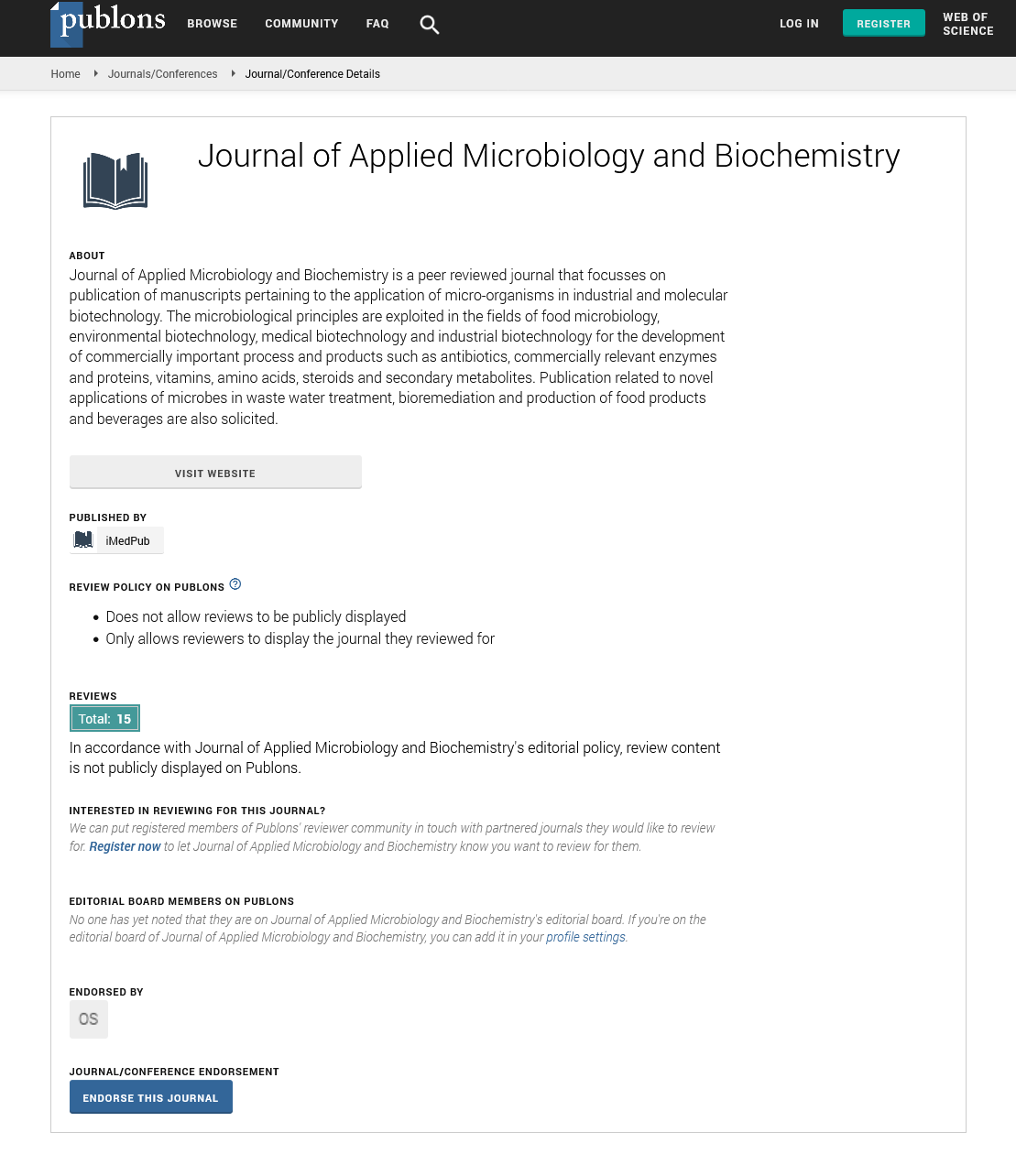ISSN : ISSN: 2576-1412
Journal of Applied Microbiology and Biochemistry
Abstract
Characterization of an Alcohol Dehydrogenase of the Hyperthermophilic Archaeon Hyperthermus Butylicus
Hyperthermus butylicus is a peptide-fermenting hyperthermophilic archaeon producing 1-butanol as an end-product. The pathway for 1-butanol production in H. butylicus is unknown. Alcohol dehydrogenase (ADH) is a key enzyme responsible for alcohol production, which has to be present in H. butylicus, however, the gene encoding the enzyme is unknown. From the H. butylicus genome sequence, the gene Hbut_0414 is the only one annotated as an zinc-containing ADH, but it was unclear if it would be the enzyme catalyzing the production of 1-butanol. The gene was cloned and overexpressed in Escherichia coli. The recombinant enzyme encoded by Hbut_0414 was shown to be an NAD(H)-specific primary/secondary ADH capable of using a wide range of substrates including butyraldehyde and butanol. Optimal pH values for catalyzing aldehyde reduction and alcohol oxidation were of 5.0 and 8.5 respectively. Apparent Km values for acetaldehyde, propanal, acetone, butyraldehyde, ethanol, 1-propanol, 2-propanol and butanol were 0.61 ± 0.11, 0.41 ± 0.07, 1.41 ± 0.19, 1.75 ± 0.29, 1.79 ± 0.17, 2.30 ± 0.24, 4.85 ± 0.21 and 1.68 ± 0.15 mM, respectively. The specificity constant kcat/Km for propanal was the highest (15,975 s-1M-1) compared to that of butyraldehyde (1120 ± 345 s-1M-1). Its optimal temperature was found to be 60°C, and it lost 50% of its activity when incubated at 60°C for 3 hours, and 85% of its activity when incubated at 95°C for 5 min. It is unlikely that the ADH is functional for catalyzing the production of 1-butanol in H. butylicus growing optimally at 95°C. Further investigation is required for identifying the ADH responsible for catalyzing the 1-butanol production in this hypertehrmophilic archaeon.
Author(s): Ching Tse, Nasser E Ibrahim and Kesen Ma
Abstract | Full-Text | PDF
Share This Article
Google Scholar citation report
Citations : 342
Journal of Applied Microbiology and Biochemistry received 342 citations as per Google Scholar report
Journal of Applied Microbiology and Biochemistry peer review process verified at publons
Abstracted/Indexed in
- Google Scholar
- China National Knowledge Infrastructure (CNKI)
- Cosmos IF
- Directory of Research Journal Indexing (DRJI)
- Publons
- Secret Search Engine Labs
Open Access Journals
- Aquaculture & Veterinary Science
- Chemistry & Chemical Sciences
- Clinical Sciences
- Engineering
- General Science
- Genetics & Molecular Biology
- Health Care & Nursing
- Immunology & Microbiology
- Materials Science
- Mathematics & Physics
- Medical Sciences
- Neurology & Psychiatry
- Oncology & Cancer Science
- Pharmaceutical Sciences
